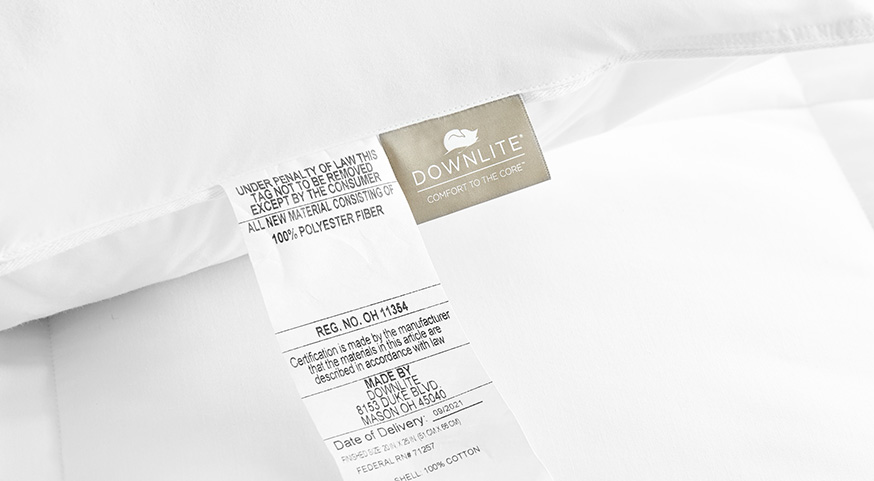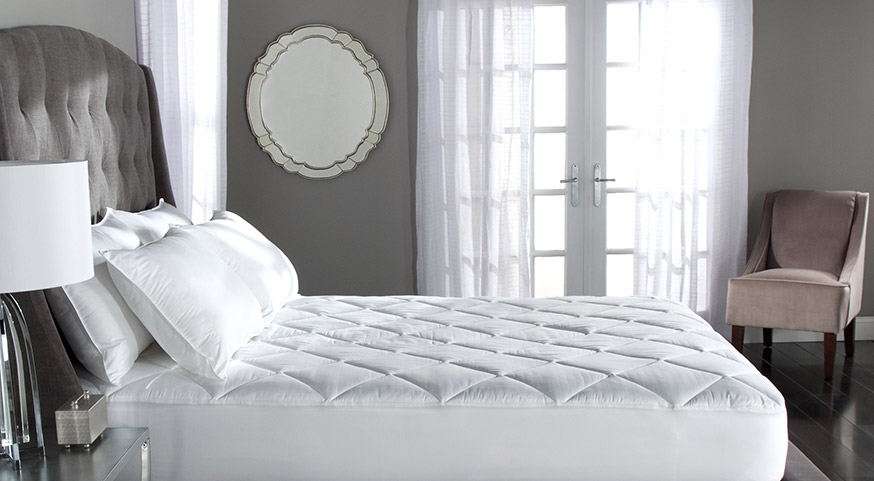Posted by Aline Martin O'Brien on Jan 13, 2022
Stay Warmer At Night
Being cold at night can impact the quality of your rest. There are many causes of excessive coolness at night, but the effects are quite similar - uncomfortable and interrupted sleep. Interrupted sleep is a significant life issue for over one-third of Americans and should not be taken lightly.
Following are a few tips to accommodate your sleep and fight against the inconveniences associated with the cold. As you will see, your room and the quality and weight of your comforter and insulation of your mattress pad are the keys to avoiding that cold feeling at night.
Prepare your room
To fall asleep quickly and avoid tossing and turning on your pillow, your entire body must be perfectly relaxed, especially your muscles. When you are too cold at night, your body intervenes to compensate. Indeed, when trying to find sleep below the ideal temperature range, the body and muscles become occupied, producing heat instead of preparing to fall asleep.
When you fall asleep, your body temperature drops slightly. To be in a suitable condition to fall asleep, it is best to keep the room at 62-66° F (16-19° C), no more, no less!
Try insulating your windows if you're struggling to get your bedroom to the ideal temperature for falling asleep. For example, you can opt for thick curtains, which will prevent fresh air and drafts from entering the room.
Cool air can also come from the base of the room's entry door as heat in the adjacent rooms rises, while the cool air falls and enters under the doorway to the bedroom. To prevent the cold from entering your room and affecting your sleep, insulate the door by placing a rolled towel, throw rug, a specially-made draft blocker, or a neckroll pillow at the door base. Just don't trip over unexpected towels or carpets in the dark!
In addition to making it difficult to fall asleep, the cold also disrupts sleep during the night. Cold temperatures can indeed create frequent micro-awakenings and prevent your body from recovering all the energy it needs.
The importance of bedding
Mattress protectors can help to stop feeling cold at night. Mattress pads have many benefits to offer and can decrease the time it takes to fall asleep and improve the quality of your sleep during the night. They can help create the correct "microclimate" in your bed, which enhances the quality of your restful sleep. Studies have shown that the human body finds optimal comfort while sleeping when the microclimate is around 35% humidity and the ambient air below 70° F.
Mattress pads generally consist of two layers:
- The soft and breathable surface that comes into contact with your skin: the surface of the mattress pad offers a high level of comfort and absorbs the humidity produced by the body during the different phases of your sleep.
- An impermeable layer that is in contact with the mattress that protects your mattress from odors and stains: this material must be perfectly silent when you move in your bed while you sleep, so opt for a membrane made from polyurethane, not PVC, which is too thick and can create a crumpling noise when you move on it.
Winter comforters are key to staying snuggly.
If you sleep with someone else, you might not have the same warmth needs. Do not hesitate to use two duvets in your bed so that each one is right for you. Another popular solution is to use an additional blanket on top of your bedding for an extra cozy night.
To be sure to avoid feeling cold at night, look for down and feather duvets, which are ideal for regulating your body temperature at night. In general, natural fillings such as down have a greater insulating capacity than duvets made from synthetic fibers. Pay attention to the quality of the materials that make up your duvet: it is decisive in giving life to a duvet that properly retains heat. Goose and duck feathers and down, certified following best practices, should be preferred.
If you would like personalized assistance or professional advice before ordering your bedding, you may contact our customer service representatives, and they will assist you in your decision-making.
Photo by Vlada Karpovich from Pexels










